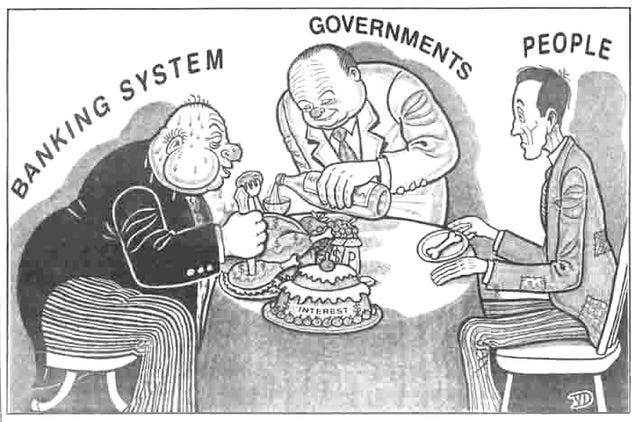Cronyism and Governmental Corruption
The opinion that the government is corrupt is certainly common in the modern day, and not without good reason. All too often, politicians make deals and rake in money far beyond their reported salary as a public servant. This often occurs through lobbying and agreeing to support certain bills or movements in exchange for stocks or other insider information. It makes the rich richer while actively harming and betraying the constituents they have been sworn in to represent. Of course, no politician will admit to these practices, but they are clear as day to the average citizen; however, these practices are certainly not new, and if there is to be any change, it will need to be systemic to combat this integral facet of modern politics.
Historical Cronyism
In the discussion “Cronyism in America: The Nation’s First Big Business” led by Dr. Patrick Newman at Oklahoma State University, he discusses in depth how cronyism during the development of the Transcontinental Railroad resulted in large amounts of frivolous spending and inefficiencies that sucked money out of American pockets while resulting in a subpar product. The railroad was contracted by the government to companies that officials often had financial backing in, resulting in an incredibly bloated construction timeline for two reasons. Firstly, companies were incentivized to artificially extend work on the project so that they would continue to receive governmental pay, and government leaders wished to see the project extended due to their personal financial backing of the contracted constructing companies. It is a vicious cycle as the leaders of government make money off of their own inefficacies that are inevitably paid for in full by its constituents. Not only is it wasteful of money, but the final product is often lacking as well, as there is no competition in government subsidized programs, so the drive to deliver quality service is lacking. Likewise, the finished railroad had many sections that had to be completely redone due to poor construction standards that were not consistent for safe operations of trains.
Dr. Newman posits that, rather than have the government be in charge of contracting such work, it should be left to private enterprise, as it is only in that sphere can competition simultaneously drive prices down and quality up. Normally, I take slight objections to the opinions presented in these discussions, but I believe that Dr. Newman is exactly correct in this belief. The government, by definition, is the sole authority in a nation’s leadership, and when it takes charge of its infrastructure and economic development, the potential for innovation and quality from a competitive market is completely eliminated. It is this reason that large, government programs inevitably have large economic waste. Rather than have exorbitant taxes that pay for ineffective programs, reduced taxation so that consumers can fund efficient, and quality private sector products will spur greater economic growth and reduce government corruption.
Moving Forward
Of course, much of this is easier said than done, and it will be a difficult process to truly enact any amount of change. As discussed previously and seen through the example of the railroad, cronyism in government goes back since the practical existence of modern democracy. The elements that allow it to thrive are baked into the current system, so only by altering the fundamental current understandings of democracy can true change be enacted. The answer to this question can be wildly different depending on which specific country is being discussed, so the following will be prefaced in that it is in reference to the current American democracy.
There are many ways to go about this, but one of the simplest methods that is already popular among many citizens is term limits for all governmental offices, not just the presidency. Many politicians now get elected and then easily begin participating in cronyism and the cushy lifestyle it provides, as they know they can continue to use the garnered money and influence to continue winning elections, thus continuing to grow their power base in a constant cycle. If term limits were enacted, this cycle would be cut off, and politicians would be forced to use their limited time in ways that actually benefited their constituents most effectively, as they will shortly return to being a mere constituent once they have reached their limit.
It may sound drastic to some, but realistically, it could easily be put in place through a constitutional amendment, just as the limits on the presidency have been. Of course, others argue that it would never pass, as the ones who need to pass it are the same ones whose jobs it would threaten, but does this paradox not just point out the corruption and need for it at all? It may be difficult, but this will return much of the power stolen by cronyism and other corruption to the people, saving both their money and their time whilst allowing for greater development and innovation.
